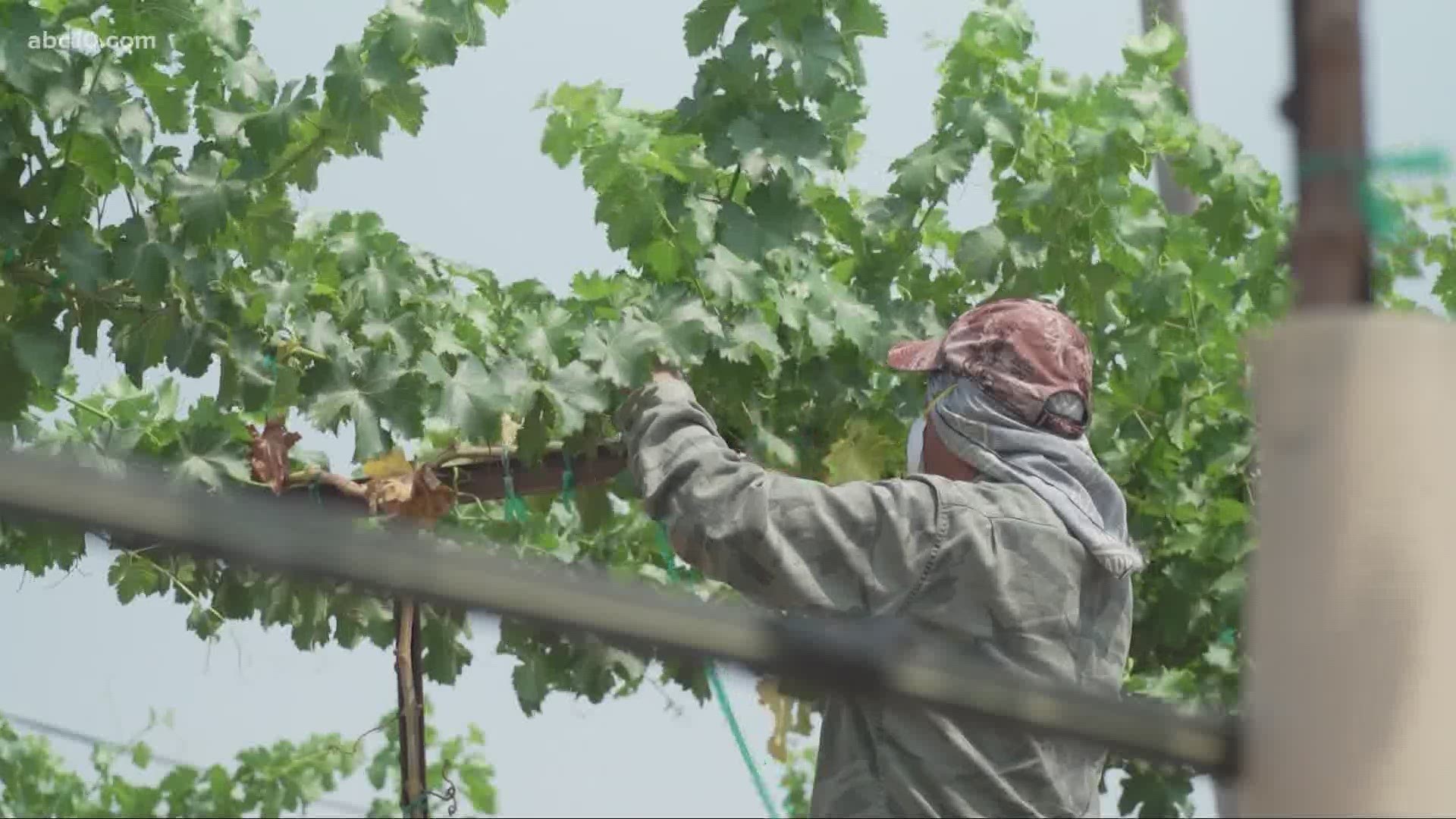DAVIS, Calif. — The University of California, Davis, will offer free coronavirus testing for agricultural workers in the Central Valley, where the coronavirus pandemic has reached alarming levels.
The National Institutes of Health (NIH) announced Wednesday four research centers under the university would share a $3.7 million.
This effort was part of the NIH's national strategy to improve COVID-19 testing for underserved and vulnerable populations. The institute provided $234 million for its plan.
"It is critical that all Americans have access to rapid, accurate diagnostics for COVID-19, especially underserved and vulnerable populations who are bearing the brunt of this disease," NIH Director Francis Collins said.
UC Davis Environmental Health Sciences Center, Clinical and Translational Science Center (CTSC), Center for Reducing Health Disparities, and Comprehensive Cancer Center will be working together to implement this project. UC Davis planned to connect with community partners to test workers in Fresno, Madera, Stanislaus, and Yolo counties.
"This is a great opportunity to really provide tangible support to the communities in the Central Valley," Environmental Health Sciences Center Director Irva Hertz-Picciotto said. "It's clear that the epidemic is in many ways out of control in this region."
In the next couple of months, UC Davis plans to start sending two mobile health vans to offer rapid antigen testing at locations convenient for the workers and their families. The university planned to hire two clinical coordinators and two lab technicians for this project.
California's farmworkers, the majority of whom are Latino, were among the state's highest-risk populations for COVID-19 infections and complications.
Latinos make up roughly 40% of California's population, but more than 60% of its coronavirus cases, according to the California Department of Public Health (CDPH). Latinos die of COVID-19 at a rate nearly twice as high as whites, according to the CDPH.
Farmworkers often lack personal protective equipment (PPE) and cannot stay 6-feet from co-workers, especially when traveling to work on employer buses and vans. The workers are also more likely to have higher rates of underlying health conditions such as diabetes and obesity and live in crowded homes where the virus can spread rapidly, the university said in its press release.
Many farmworkers can't afford to miss work, even if they're sick, and are less likely to take time off the job to go to a COVID-19 testing site UC Davis Center for Reducing Health Disparities Director Sergio Aguilar-Gaxiola said.
Read more from ABC10
WATCH ALSO: What to do if you can't pay rent

